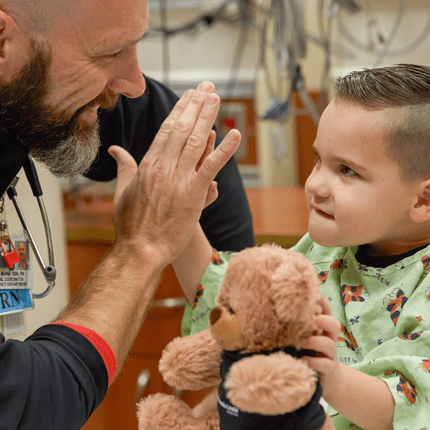Playroom Organization Project
August 31, 2020Meet the Mom: Iryssa Jackowitz
September 7, 2020What is a concussion?
A concussion is an injury that disrupts how the brain normally works, usually caused by a sudden blow or jolt to the head. Contrary to popular belief, concussions aren’t always signaled by loss of consciousness. Another term for a concussion is “mild traumatic brain injury.”
What should parents do the first days after a concussion?
A doctor should be involved in your child’s care because, in rare cases, severe medical problems can occur. Monitor your child carefully for the first one to two days after injury. Seek immediate medical help if he or she displays any of the following:
- A headache that worsens or lasts for a long time
- Confusion, extreme sleepiness, trouble walking or talking
- Frequent vomiting
- Weakness, numbness
- A seizure or convulsion (arms or legs shake uncontrollably)
How long is the recovery process and how soon can my child return to school/sports?
Most young people recover completely from a concussion within one to two weeks. Some cases, however, can take up to a few months to fully recover. Once your child is able to safely return to school after following the appropriate plan of care, the Concussion Center team actively communicates with coaches and parents to help the patient return to their favorite sports activities in the timeliest and safest manner possible.
Following the Injury
Families can help children recover from a concussion by:
- Getting plenty of rest
- Making sure your child avoids high-risk/high-speed activities such as riding a bicycle, playing sports or climbing playground equipment until his or her doctor has given clearance to do so
- Giving your child only those medications that are approved by doctors
While healing, your child should be very careful to avoid activities that could cause a blow to the head or body. On rare occasions, receiving another concussion before the brain has healed can result in a longer recovery period or a more serious injury.
The St. Marys Concussion Treatment Center Team
The Concussion Treatment Center features a team of pediatric specialists that work closely with family doctors and pediatricians to help diagnose, treat and manage concussion injuries. The team is dedicated to providing individualized care with the goal of returning children to normal activities as quickly and safely as possible. In conjunction with families, school officials and sports coaches, the Concussion Center team also works to educate the patient’s support system on what steps are needed for short-term and long-term recovery.
What to Expect
In most cases, the specialists at our Concussion Center will perform a CT scan to help rule out any brain injuries, and a follow up MRI if a physician finds it necessary for further observation.
If the CT scan doesn’t reveal any abnormalities, your child may be referred for a vestibular therapy evaluation by an occupational therapist. The vestibular system, composed of the inner ear and brainstem, is responsible for sensing motion and producing reflexive movement of the eyes and limbs to proper stabilize our bodies.




